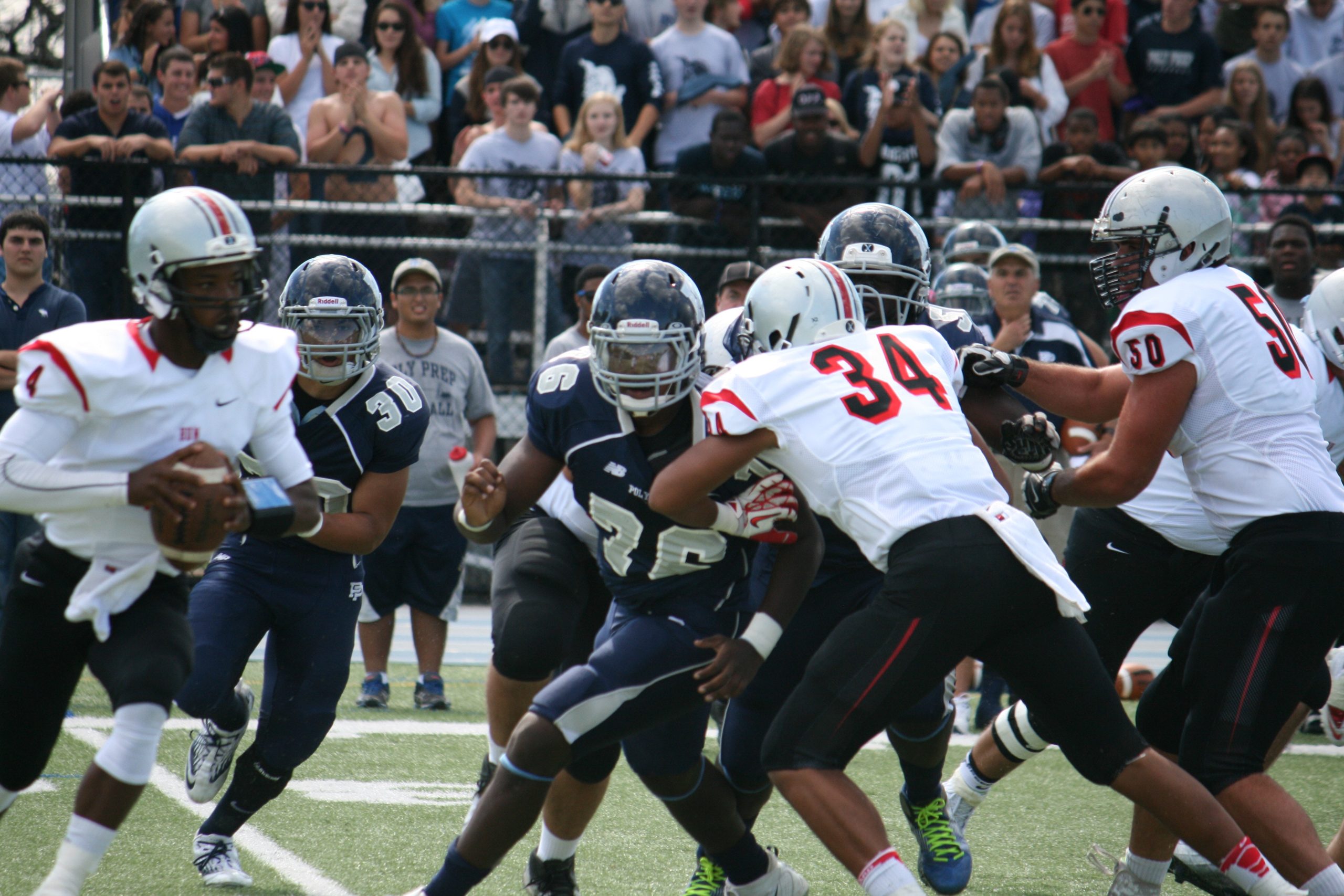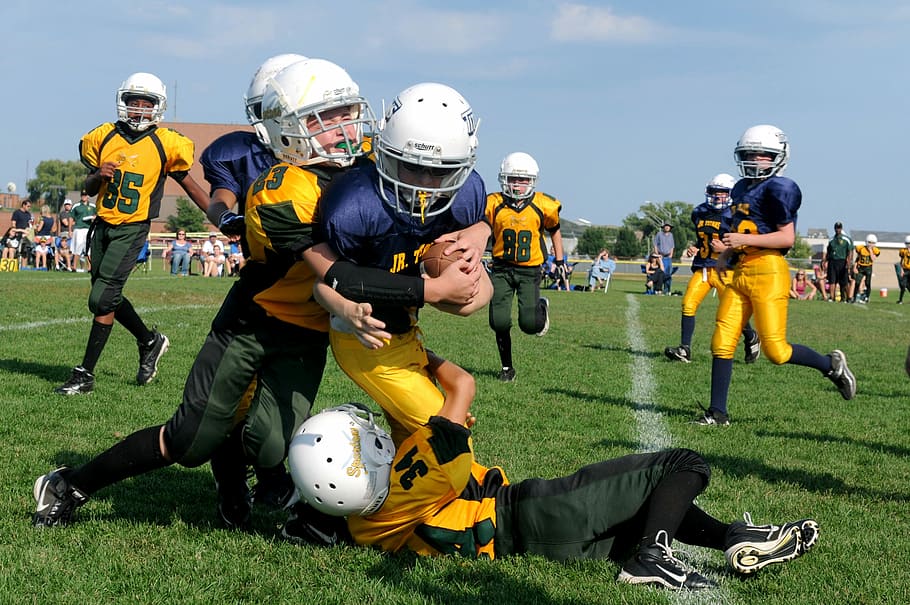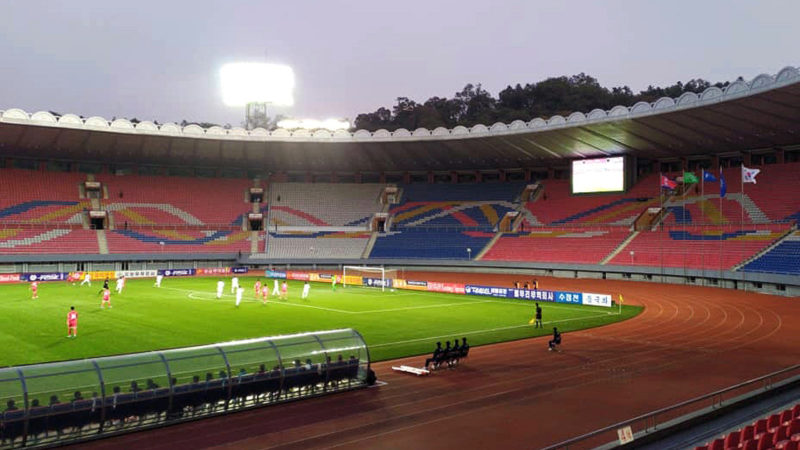What is Illegal Touching in Football?

Basics first, so let’s begin with what is a “kick”? The word “kick” can own two different meanings when used during a football match. It describes the play, which is either a free kick or a scrimmage kick. Kick also describes the status of the ball wherein the ball once been kicked as a loose ball is called a “kick” until it is possessed.
This part is quite important as there are special rules regarding who may touch or/and advance the ball while it is still a “kick.”
There also are certain special penalty enforcement rules in case a penalty occurs during the play.
As all the kicks during a football game fall under these two kicks, let’s know in detail about them.
Free Kicks
So, what are free kicks? Free kicks basically are kickoffs! To be precise, it is both regular kickoffs and kickoffs, but while following safeties.
The contrast between free kicks is that they may be legally possessed by the kicking team (by the way, kicking team is, as the name suggests, the team that kicks the ball and the receiving team is the defense) once certain qualifications are met.
Imperatives being, the ball has to have traveled 10 yards and been grounded or have been touched by the defense team.
If either of the two scenarios takes place and the kicking team gets back the ball, they may do keep it & put it into play 1st and 10.
Under no circumstances may the kicking team advance the ball if it still is a kick.
This is exactly why you must have gotten to see a member of the kicking team pick up an onside kick & start running while the officials blow the whistle.
If in the game the status of the ball is still a kick, the kicking team may possess it condition being that they may not advance it (if the imperatives have been met with).
On the other side, if the receiving team recovers the possession and then fumbles, the kicking team can run as far as they can (if they pick it up).
Scrimmage Kicks

What exactly are scrimmage kicks? Scrimmage kicks are field goals, extra-point tries, and punts. How are they different from free kicks?
Scrimmage kicks are different in a way that once the kick does cross the line of scrimmage, the responsible kicking team may not possess the ball condition applied; it has been touched first by the receiving team.
Hence, if the kicking team runs down and jumps on the punt at a five while it is still untouched by the receiving team, then the ball will belong to the receiving team at that very spot.
Even field goals are treated the same way as punts exception being where the ball comes back to in case it is untouched or off bounds.
Be it any level of football, kicking plays are the most difficult of the plays to officiate.
You might be thinking about why it’s so? It is that way because kick plays have the most complex set of rules to follow, and there are a fewer kick plays during the game.
Now that you pretty much know all of the definitions, you can come down to the actual point of concern here, which is illegal touching.
So What Basically is Illegal Touching Football?
Illegal touching football is actually a violation and not a foul. Neither is there a prescribed penalty to be imposed for an illegal touching and nor can it be combined with any other foul in the game to create a double or multiple fouls. Hence, no flags are thrown for illegal touching of a kick.
How to Determine an Illegal Touching Football?
Illegal touching usually occurs under two circumstances; one is when it’s a free-kick, and the kicking team is the first of all to touch the ball before it has traveled 10 yards.
The second situation when illegal touching occurs is before it has been touched inside the 10 yards by the receiving team.
If the kicking team does touch the ball first after it has crossed the LOS, then illegal touching occurs on a punt. If the ball still continues in play, then it has to be marked with a beanbag.
Has Illegal Touching of a Kick Anything to Do with a Player Going off Bounds?

No, it hasn’t anything to do with whether a player has gone out of bounds or not. Don’t understand what that means?
Well, it simply means that if the kicking team is the first to touch the kick, then eventually, the receiving team can do whatever they want to, except for making a foul, and return to the spot of illegal touching.
There can be circumstances where the receiving team picks up the ball, runs 80 yards, fumbles, the kicking team gets to return it for a touchdown, and still, the ball restores to the spot of illegal touching becoming the receiving team’s ball 1st and 10.
According to illegal touching football rule, only an accepted foul by either of the teams can cancel the illegal touching, which is why the officials continue to officiate the play and signal possession of the ball for the kicking team once the receiving team fumbles the ball after an illegal touching.
REMEMBER
In case illegal touching takes place after the ball has broken the plane of the goal line, the illegal touching spot will be the touchback.
Key Takeaways About Illegal Touching Football?
- Illegal touching occurs when the kicking team touches the ball before a member of the receiving team touches it.
- It hasn’t anything to do with the player going out of bounds. The receiving team’s touching is always considered as legal.
- The receiving team can henceforth, do no wrong except for making a foul.
- Illegal touching is not actually a foul; hence, there are no football penalties signals thrown.
- Illegal touching happens all the time and is not considered as a big deal as none of the receiving team members are there as well to touch it.
- There is also an illegal touching football foul which has to do with an ineligible receiver touching a forward pass, so don’t get confused!
Though illegal touching is not considered that important in a football game, you should know everything when playing or watching the game, whatsoever. Now you too have got something in your pockets to talk about for the next time you watch a game with your peeps.



